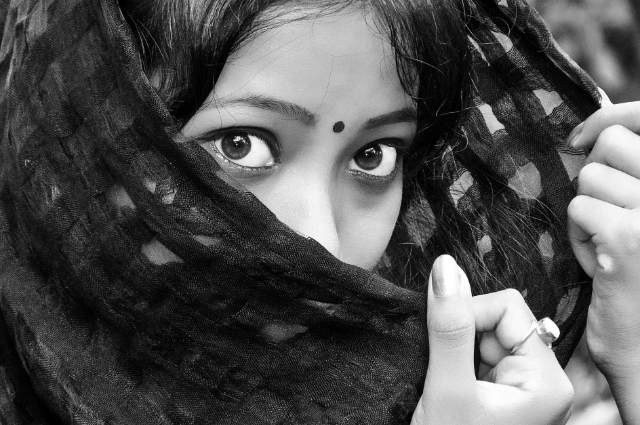
Image by Pexels from Pixabay
We all must have heard the Hindi word ‘Japa’, after pregnancy, the rest that mothers get during body recovery, that 40 days period is called Japa. People associated with Japa have made different concepts which are sometimes difficult to follow. Every state of India has different rules which must be followed, and which are essential for the health of the mother in her post-partum periods. You will be surprised to know if someone tells you that during Japa period the face of your husband and father-in-law is not seen but it is true. If you see the husband's face even by mistake, then the girl's face will turn black. This thing must have been told for the purpose of scaring or because the girl did not see her husband for fear that her face might turn black. Mother and child gain health quickly by feeding good nutritious food, healthy food, even this is true, but does it really turn black on seeing the husband's face, will any reader explain to me? As far as I believe, after having a child, a mother most of all needs her life partner and his moral support in every way to fast recovery. A life partner is the biggest support in every difficult day from the time of labour pain to post-partum. All the rules of Japa, made by the main lady of the house according to the comfort of her family. When to wake up, when to bathe the baby, when and how much to eat, it's all done by the main powerful lady of the house. Who will go to meet the girl, at what time she should go to sleep, it has nothing to do with what the girl wants.
Here, when the child's father is not allowed to meet his life partner, so in that condition he must believe his mother and nothing much about his role here. If he shows more concern to his wife, family and society will say ‘being educated don’t forget your values, or Jodu ka Gulam ’. No one asks what the girl's wish is, she is not allowed even to meet her life partner. It is not Japa but in the name of Japa that has been going on for centuries that makes the girl more vulnerable both mentally and physically. How long will the women here bear all this under the pressure of their society and family? Only getting married and having children is the real principle of a woman, does being educated and being economically independent separate women from the society of her own? A great notion should be passed from generation to generation, but what world are we living in where post-partum women are treated like polluted? Cultural restrictions humiliated her, and she can't even enjoy her motherhood according to her wish. She is not even allowed to go to her mother's house because the child belongs to the in-law’s family. Japa should not be associated with sorrow but with happiness, with a new little one, it brings immense happiness and doubles it if it is a son. On one hand, the slogan of 'Beti Bachao Beti Padhao' is echoing in the country, but on the other hand, daughters are forced to live like this in their own homes. Japa is seen in a way; it is that aspect of patriarchal thinking where women cannot be considered as independent women. She can't sit among people, and must stay in a room alone who and why made the rules that are still in use today and practiced? All these rules are made for girls only which tells her that you keep subordinating herself. If Japa culture is compared to foreign countries, there is no such restriction women must face. They are at liberty to eat whatever they want, or she gets full support from their life partner. From giving birth to taking care of the child, both husband and wife have equal responsibility. What we teach the children is what they see and follow, so is it not the responsibility of all of us to change the Japa culture in a positive way? It was found that in patriarchal families they prefer to marry those women who are a less educated and serene girls.
We should understand the fragility of the post-partum period and menstrual condition it's not polluted it’s our beginning of life. On the one hand, we worship Goddess in Navratri, and on the other hand there are millions of restrictions on women in her reproductive age. People look for girls when nine goddesses are worshiped in Navratri, but surprisingly no one wants to give birth to a female child except some families. In educated families, girls are considered to some extent, but when it comes to making decisions related to marriage or studies, they do not get their freedom. Even now, in rural areas and orthodox families, girls are not allowed to take their husband's names. That is why she hesitates to ask for her own rights, because when she cannot speak the name of her husband, how will she demand for her rights and freedom? Women are made so busy with household chores and children that they can never think for themselves even for their own rights and equality. The President of our country is a woman, but shouldn't we think about the rights of those women who are still facing the consequences of being a woman in the name of Japa?
